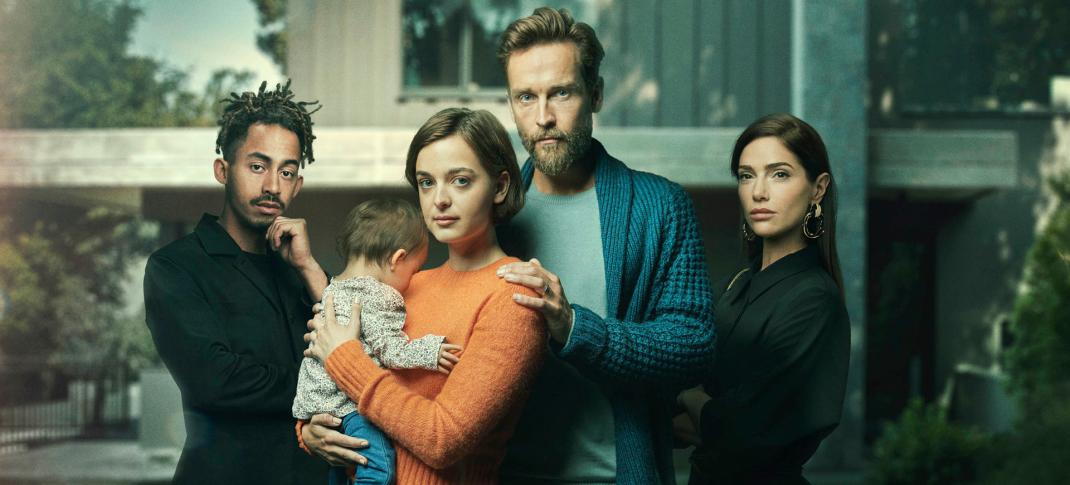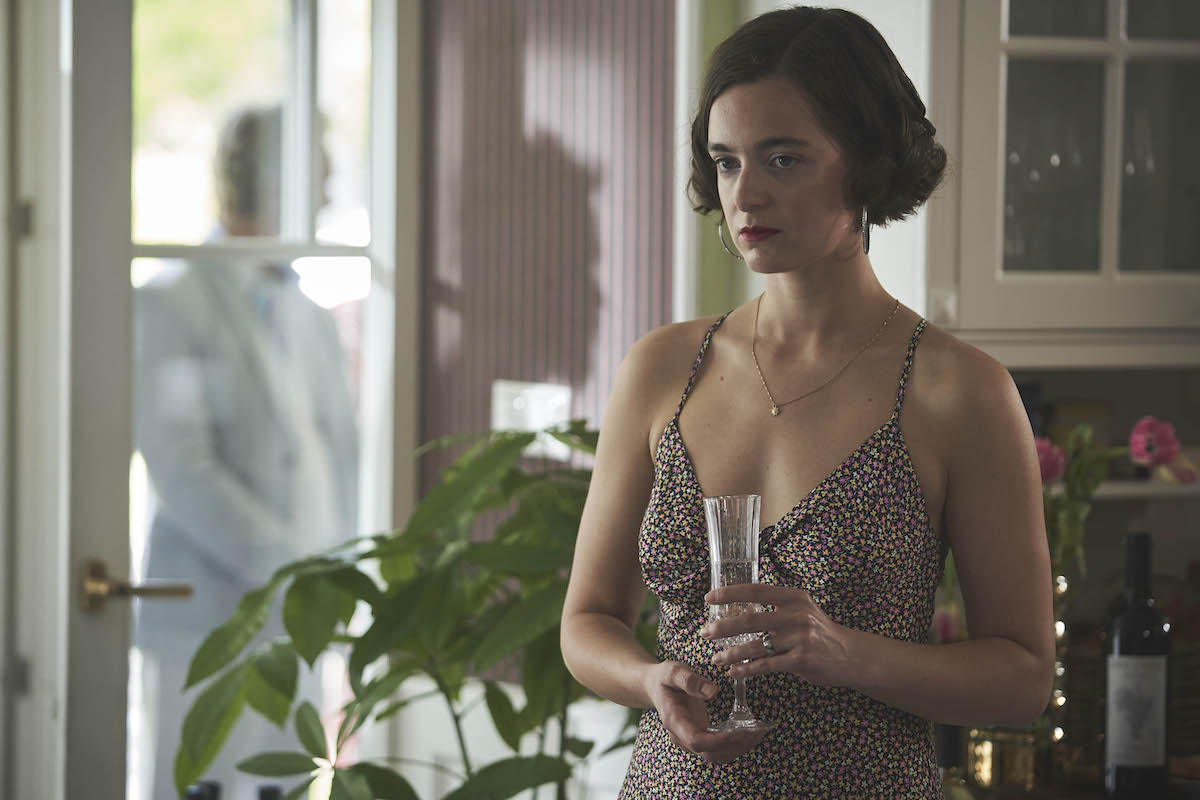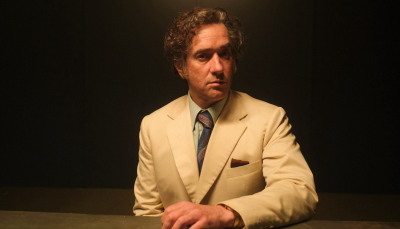'The Ex-Wife's Subversive Self-Sabotage Makes for a Suboptimal Series

Jordan Stephens, Celine Buckens, Tom Mison, and Janet Montgomery in 'The Ex-Wife'
BritBox
The Ex-Wife is one of those book adaptations. You know the ones – a dark dive into sheltered, wealthy suburban bliss, where discontent and manipulation fester, someone’s partner gets killed, someone’s kid goes missing, or someone wants to steal your baby. (Yes, yours!) In today’s saturated “prestige” TV era, you can even make it look a little bit like Gone Girl, the gold standard for this subgenre of subversive thriller fiction. The Girl on the Train, The Woman in the Window, Netflix’s Safe, The Stranger, and Obsession all hit the mark of literary adaptations you start watching and immediately think, “Oh, it’s based on that kind of book” – a glorified airport paperback with a hint of playful gender politics and a whole lot of recycled plotting.
By the time we press play on BritBox’s The Ex-Wife, based on the 2018 novel by Jess Ryder, we’ve been conditioned to anticipate the beats: an unhappy marriage, a dangerous woman threatening its stability, murky family secrets, extramarital sex, fetishization of the stability of a family, and worryingly aggressive husbands. Tasha (Bridgerton’s Céline Buckens) is a young mother who recently had a child with a wealthy married man, Jack (Tom Mison). He left his wife Jen (Janet Montgomery), or more accurately; he kicked her out of their lush modern house.
But it doesn’t pan out totally peachy for Tasha. She now has to deal with incredible tension from Jack’s family and regular appearances from Jen in their private life, sanctioned and encouraged by her new husband. When Jack’s sister Hayley (Clare Foster) asks Jack and Jen to be her child’s godparents, a chain of events turns Tasha’s life upside-down.
There are clear satisfactions to something like The Ex-Wife; it’s designed to be simmering, smarmy, and scandalous, all necessary ingredients for an indulgent, watch-it-in-a-weekend miniseries. On a craft level, it’s fine; the look and feel of scenes suggest a prestige sheen, but the cinematography is bread-and-butter basic, and some cheap visual and audio choices stick out like a sore thumb.
The Rosemary’s Baby paranoia of Tasha worrying about Jen’s intentions with her infant daughter is effective, as are the infuriating misogynist moments when her voice is undermined and lies are spread about her. It was a clear choice to have everyone in Jack and Jen’s life be excruciatingly posh, meaning they’re all two-faced, cutthroat narcissists whose priority is closing ranks against outsiders. The issue is, this deep in the genre, we are all very aware of the purpose and vibe of The Ex-Wife’s drama: the social codes and conventions of rich bourgeois life suffocate dissenting female voices and undermine their agency.
If The Ex-Wife must exist, and we’re not allowed to just consult the half a dozen exact copies, it’s unclear why it has to unfold over three hours – any self-respecting film would wrap it up in about 100 minutes. The runtime becomes more of an issue when the reveal of why mother and daughter are targeted is signposted from the first episode. The first two hours are spent shunting Tasha back and forth between the same dramatic crises with little escalation – it seems the story’s only tricks for upping the ante are a) Jen turning up where she shouldn’t and b) Tasha thinks Jen has kidnapped her baby.
Credit where credit’s due: Tasha realizes the whole situation is probably not worth it and tries to walk out on Tom about the stage I would, but The Ex-Wife still feels like a missed opportunity to deeper interrogate its story – no effort is spent figuring out why some affluent couples are so pathologically fixated on proving their worth by having a child.
Buckens, as one of the only actors not playing everything mega-posh, stands out in the small ensemble. Her scenes have a playful, earnest emotionality, which only becomes more apparent when she’s up against Mison’s one-note upper-crust performance.
This is also the type of show where the actors/characters universally imagine they’re being 100% more snarky than they end up being. (It’s also a wild way to discover that Rizzle Kicks’ Jordan Stephens has been acting for the best part of a decade.) Just when you think Montgomery’s performance is trapping Jen in a rut of suspicious scheming, a third-act twist subverts not just expectations but the fundamental archetypes of the nasty ex-wife. In the final episode, it’s clear what screenwriter Catherine Steadman and original author Ryder are trying to say: what is a crazy ex but another perverse manipulation by men of natural impulses and behaviors?
But by doing so, the story structure gets needlessly fractured (Episode 4 has a bad case of flashback-itis) and goes too far the other way. In their efforts to undermine Jen’s maliciousness, Steadman and Ryder absolve her of wrongdoing. She is not seriously flawed but a victim of misunderstanding; not only does it end the thriller on too-clean a note, but there’s practically nothing for Tasha and Jen to overcome or process. It’s hard to get too enthused in a series uninterested in posing complicated questions to its characters – or audience.
All episodes of The Ex-Wife are streaming on BritBox.






